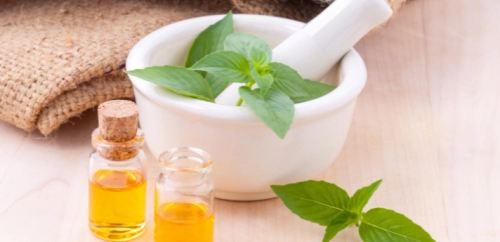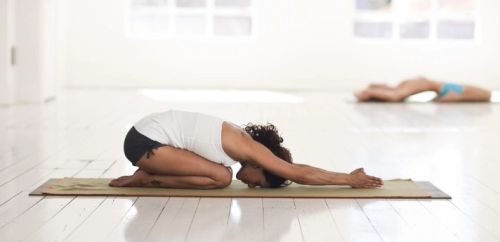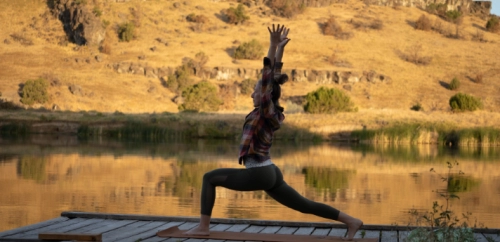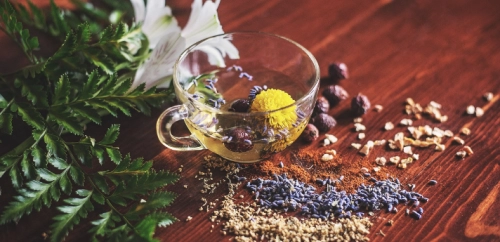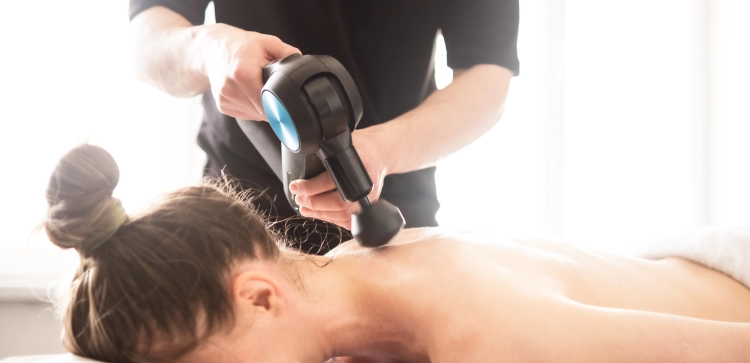Is Mindfulness Good For Anxiety?

Anxiety and stress touch all of our lives at some point. For some, that is an everyday occurrence, but for others, it only happens occasionally. No matter how often it happens, having tools in your arsenal to help combat it is vital for your physical and mental health. That is why mindfulness is such a great practice to introduce into your life when you're dealing with high levels of anxiety and stress.
Any form of mindfulness practice can help combat anxiety and stress. This is because mindfulness practices allow you to reflect on your thoughts and surroundings by creating stillness and quietness in your mind.
Having this done allows you to develop the ability to focus your attention on the moment and let go of your regrets and fears. This, in turn, will help you live in the moment and refrain from getting bogged down in all of those anxious thoughts and worries. Let's take a look at how mindfulness works and answer the question posed above.
Breaking Down Mindfulness - How It Works
Mindfulness is a multi-layered practice that trains the individual to open up and be accepting of their emotions and others while navigating their surroundings with confidence. That simple definition may be why answering the question "is mindfulness good for anxiety" is so easy.
Mindfulness creates practices that allow you to identify and process emotions so that you can react to them accordingly. It also has a huge impact on opening up one's mind to two different perspectives and opinions without being judgmental.
All of this is done by focusing on things like body awareness and being intentional with your focus. Through the processes, no matter which mindfulness practice you are utilizing, you will gain self-realization as well as physical and mental wellbeing.
Is Mindfulness Effective for Anxiety?
When you look at the core pillars of any mindfulness practice, you soon see that the answer is a resounding yes. This is because mindfulness is the opposite of anxiety.
When people are anxious, they feel that they can't get out of their minds. Whether that's because their thoughts are racing, or their emotions are unpredictable, it can be exhausting.
On the other hand, mindfulness has you acknowledge those thoughts and emotions and work through them so that you can continue with your life in the present moment without stress. This is because core pillars of mindfulness practices allow you to accept experiences and work through them to be less reactive at the moment.
Mindfulness may not be a one-stop-shop when it comes to eliminating anxiety, but, it can be a tool that you utilize to manage it and relieve yourself of a large majority of this very toxic emotion.
Mindfulness Techniques for Anxiety
There are many reasons why mindfulness is good for anxiety. But the only way to take advantage of those ways is to institute mindfulness techniques throughout your day. There are a lot of great options, but below, we're going to take a look at a few of them so that you can begin the process of combating that anxiety and stress.
Breathwork
Most mindfulness practices focus on breath and body connection. That means instituting several different types of breathwork throughout the day could potentially help you combat anxiety.
When you're having a moment of anxiety, everything is very chaotic and fast, so taking a moment to center yourself by taking some deep breaths can change the whole situation and your reaction to it. Focusing on your breath allows you to regain focus and be more attentive to the situation.
To incorporate breathwork into your daily activities, you want to understand the core principles of the concept. You have to be able to be aware of your breath, and that starts by taking a moment to breathe in and out slowly.
You want to take inventory of your thoughts, emotions, and surroundings as you breathe in and out. As you do this, your breath and your body will connect, and you will be more focused on the present moment.
Mind & Body Connected
Anxiety is often based on fear and fearful thoughts. When this begins to happen, your sympathetic nervous system begins to send signals to activate your fight or flight response. This is done through hormones and chemicals that are produced in the brain and body, flooding everything and only heightening the emotions even more.
To combat this, having the ability to really understand the mind-body connection is vital. This can be done in several different ways, but one of the best ways is to begin dropping into breathwork so that you can ground your body.
But before you can do that, you have to be able to observe your physical reactions to your mental and emotional state. For instance, you have to notice that tension in your back or that knot in the belly. Once you are in tune with your body's reactions to anxiety, you can then combat it.
Non-Reactive
Being judgmental and reactive is in our human makeup, and it's not healthy for us. When we do this, oftentimes we jump to the worst conclusions, and this can only heighten our anxiety. So when you feel this is beginning to happen, the best course of action is to stop and take a look at the situation.
Before you can get to that point, though, you have to ground yourself again, so doing a little self-visualization is a great mindfulness tool. So whenever you have a situation come up where you need to be non-reactive, you can take in a deep breath and do a little breath work while visualizing yourself lying somewhere comfortable, most likely in nature.
Look at the clouds above you and observe the shapes and feel everything that is around you. As you do this take a look at your thoughts. Observe and then either accept or let them go. This will stop you from making any sudden decisions and lead to a more anxiety-free life.
Taking Notice
Taking the time to build a mindfulness practice that allows you to identify anxious thoughts and their sources can allow you to change your whole attitude. By simply practicing being observant of your thoughts and your surroundings, you can be balanced, which will naturally strengthen your ability to not be so anxious.
A great technique to do this is to take the time to really make a note of every thought that comes through your mind. This can be done through journaling or just simply by sitting with your thoughts for a little bit.
Some people even use post-it notes during their day so that if a thought comes by, they can write it out. This is a great way to build the practice, and then eventually, you can let go of the post-it notes and simply be able to take note of every thought that happens.
Take A Minute
Remember when you were little, and your parents used to tell you to stop and think before you speak. This is not necessarily a bad suggestion. In fact, in mindfulness, taking a pause when you're in a situation can help combat anxiety immensely.
Take a second between bites of your food to really think about how it feels and what it is doing for your body. Take a moment between sentences so that you can analyze your thoughts and reactions. All of this allows there to be a moment in between that can calm the anxiety and allow you the time to be less reactive.
Final Thoughts
Undoubtedly, mindfulness is good for anxiety, as it allows you to combat it by doing the polar opposite of what the emotion initially has you doing. Slowing down and breathing allows you to focus on the thoughts in the moment and be less reactive so that you can stay in the present and live an intentional life that brings with it happiness and health.

